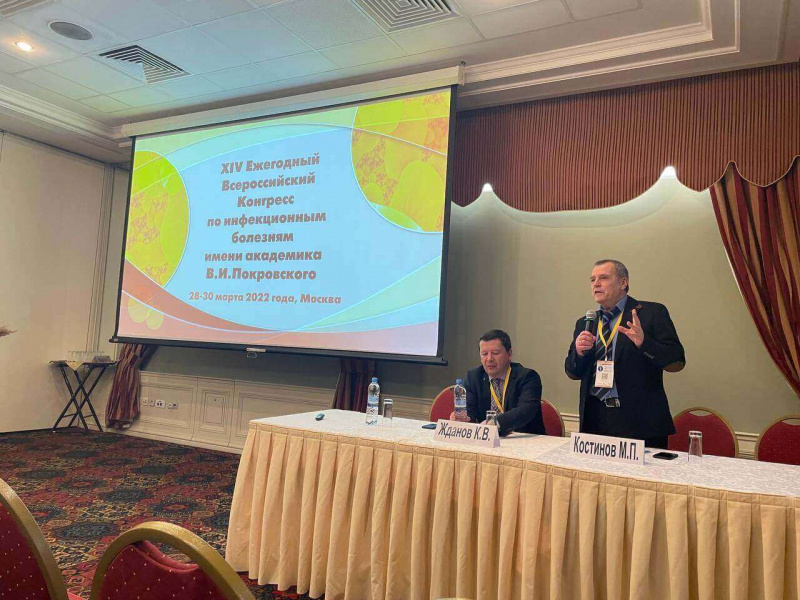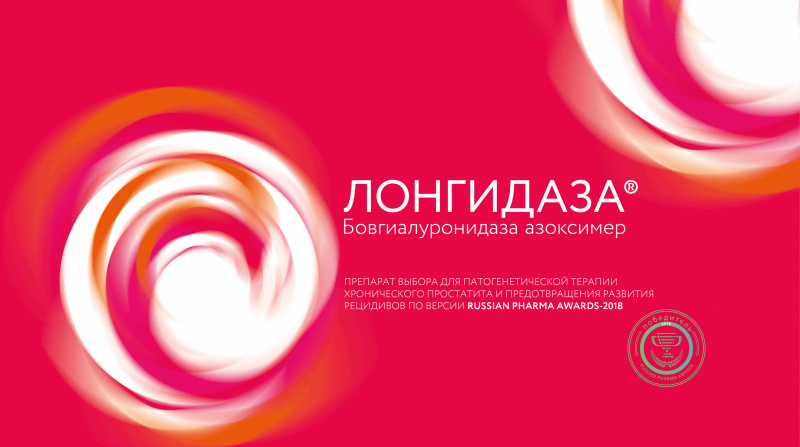
A new guide for doctors on COVID-19 vaccination in patients with comorbid diseases has been published

Immunization against respiratory infections may become a new option both in the prevention and rehabilitation of COVID-19 patients. Vaccinated patients have proven to have milder COVID-19 symptoms, and their lung damage generally does not exceed 25%. At the XIV Congress on Infectious Diseases, the Physician's Guide on Preventive Coronavirus Vaccination in Patients with Comorbid Diseases was presented.
Multiple medical observations have shown that vaccines — not only COVID-19 but also influenza and pneumococcal ones — can provide protection boost during the pandemic. Mikhail Kostinov, professor, allergist/immunologist, explained why immunization reduces the risks of getting ill several-fold. The fact is, the studies have shown that the adjuvant influenza vaccine with azoximer bromide and the pneumococcal polysaccharide conjugate vaccine activate the innate immunity receptors — including those that recognize viruses — and trigger cellular mechanisms of immune response. Thus, the body gets ready to face the SARS-CoV-2 virus.
As Mikhail Kostinov says, even if a vaccinated person gets ill, their infection is much milder. Among influenza vaccines, he noted Grippol® Plus which contains the adjuvant azoximer bromide, an immune system modulator that can reduce the antigenic load in the body and actually double its immunity, i. e. help to form the post-infection immunity.
Unvaccinated patients have been shown to have high risks of severe post-COVID complications. And today, physicians are looking into various therapeutic practices in order to alleviate the condition of such patients. “The clinical presentation varies from one patient to another. One patient may recover slower, while another one may recover fast. The risks of getting disabled or having the quality of life worsen are high,” says Galina Ignatova, a pulmonologist.
According to a study by Sechenov University, almost 50% of patients still experience ongoing symptoms six months after being discharged from the hospital. More than 20% of patients experience weakness, about 15% of them have dyspnea.
Today, physicians successfully manage lung dysfunction — which may persist for a long time after discharge — with Longidaza®. At certain Russian medical centers, the patients have received this enzyme product within routine clinical practice as part of the DISSOLVE trial. The the drug has been shown to reduce dyspnea and increase tolerance to physical activity and oxygen saturation after COVID-19.
One of the Physician's Guide chapters describes the non-specific prevention of respiratory infections: the red zone clinicians could have seen its effectiveness for themselves. During the pandemic, there was a significant decrease in acute respiratory viral infections and COVID-19 incidence in those who took Polyoxidonium® immune system modulator as prophylaxis, compared to those who did not take the product. In addition, none of the treated subjects had pneumonia, compared to 17 persons who had it in the control group.
The Congress experts gave the data on COVID morbidity and mortality in healthcare providers. More than 37 million health providers were infected worldwide, with 115,000 of them died. In Russia, 165 thousand physicians and other healthcare providers got infected, with 1.5 thousand fatal outcomes.


